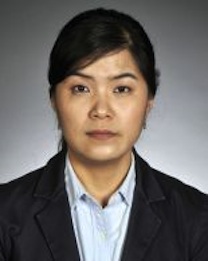Feb 11 2013
A UT Arlington mechanical engineer has been honored by the National Science Foundation with a $400,000 Early Career Development grant to support her work with microfluidic devices, which promise to improve 3D tissue and cell sample analyses.
 Hyejin Moon
Hyejin Moon
Hyejin Moon, who joined The University of Texas College of Engineering in 2007, has developed a novel approach to testing microscopic amounts of tissue and cells on microchips.
Her devices produce more accurate images and conditions of huge numbers of samples. It's a process that can more quickly identify disease biomarkers and efficacies of libraries of drug cocktails that has applications for speedier drug development.
"Dr. Moon's research has the potential to improve medical testing and disease diagnosis," said Jean-Pierre Bardet, dean of the College of Engineering. "We are pleased that the National Science Foundation has invested in this important work."
Moon said her microfluidic device technology is a faster and more reliable method of analyzing samples than traditional testing performed in petri dishes, processes that can take weeks or months to show results. Testing performed on the chips can be easily repeated, saving time and increasing accuracy, she said.
"What's even better is that the device engineers the cell and tissue samples into a 3D configuration," said Moon, who is an assistant professor in the Mechanical & Aerospace Engineering Department. "That's closer to an accurate portrayal of our bodies."
The research will involve bio, chemical, electrical and mechanical engineers, she said.
Moon said her research ultimately may lead to the development of devices that could be used by patients in their own homes.